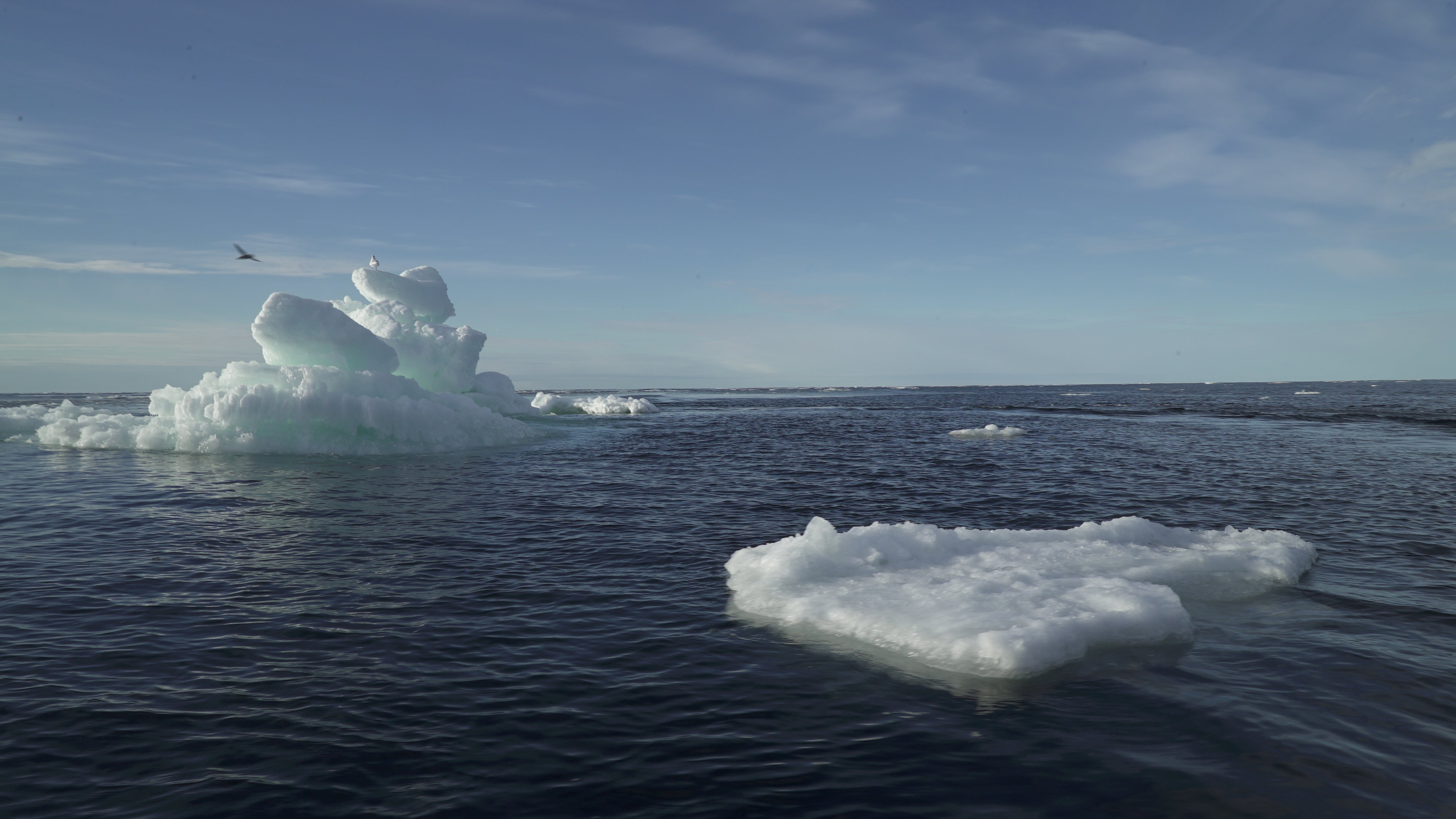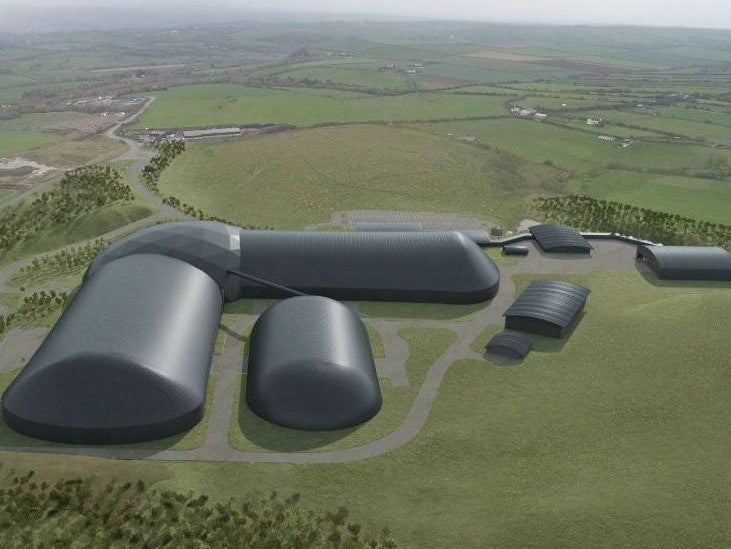Climate change – live: Boris Johnson risks being ‘vilified’ for coal mine and deforestation ‘stresses’ animals
Catch up on the latest climate and environment updates as they happened
Your support helps us to tell the story
From reproductive rights to climate change to Big Tech, The Independent is on the ground when the story is developing. Whether it's investigating the financials of Elon Musk's pro-Trump PAC or producing our latest documentary, 'The A Word', which shines a light on the American women fighting for reproductive rights, we know how important it is to parse out the facts from the messaging.
At such a critical moment in US history, we need reporters on the ground. Your donation allows us to keep sending journalists to speak to both sides of the story.
The Independent is trusted by Americans across the entire political spectrum. And unlike many other quality news outlets, we choose not to lock Americans out of our reporting and analysis with paywalls. We believe quality journalism should be available to everyone, paid for by those who can afford it.
Your support makes all the difference.Leading climate scientist James Hansen has urged Boris Johnson to reconsider plans to build Cumbria’s controversial new coal mine, telling the prime minister he risks “humiliation” and being “vilified”.
In an open letter, first reported by the BBC and TheGuardian, Dr Hansen, previously Nasa’s leading global warming researcher, told Mr Johnson: “In leading [COP26], you have a chance to change the course of our climate trajectory, earning the UK and yourself historic accolades.
“Or you can stick with business-almost-as-usual and be vilified around the world. It would be easy to achieve this latter ignominy and humiliation – just continue with the plan to open a new coal mine in Cumbria in contemptuous disregard of the future of young people and nature.”
The PM, and fellow ministers, have previously defended the mine’s construction as a local planning matter.
Meanwhile, research has confirmed what scientists have long suspected – that animals directly impacted by deforestation produce more stress hormones than other creatures.
A team made the discovery by taking hormone samples from fur-found rodents and marsupials living in smaller remaining patches of South America’s Atlantic Forest, which stretches along Brazil’s Atlantic coastline and into Argentina and Paraguay.
Hello, and welcome to The Independent’s rolling coverage of the climate crisis.
Johnson ‘risks humiliation’ over Cumbria coal mine
Nasa’s former senior climate scientist has penned an open letter to Boris Johnson, telling him to rethink the incoming Cumbria coal mine or risk being “vilified” by Britons for the rest of his time in office.
Dr James Hansen told the PM he had two choices: either to “change the course of our climate trajectory, earning the UK and yourself historic accolades” or “stick with business-almost-as-usual and be vilified around the world”.
“The contrary path is not so easy, but, with your leadership, it is realistic,” the expert told Mr Johnson.
Government ministers have defended the new site – the first of its kind for 30 years – saying it allows Britain to produce its own coking coal, needed for steel production, rather than importing it.
The letter continued: “Prime Minister Johnson, young people are fed up – and for good reason. They demand that political leaders follow the science and take the actions needed to preserve and restore a healthy climate.”
Cumbria County Council itself agreed the site, prompting Mr Johnson and his government to tell critics any negative feedback should be directed towards the team there. Ministers have also defended communities secretary Robert Jenrick’s decision not to exercise his powers to overrule the local authority.
The UK’s own Climate Change Committee (CCC) criticised the mine over the weekend, saying coking coal would have to stop by 2035 for the nation to meet its new climate change targets.

Sea levels to rise ‘more rapidly’ than previously thought
Scientists at the University of Copenhagen have said global sea levels, previously projected by the UN to rise by up to a metre by 2100 if nothing was done to combat climate change, will actually rise “more rapidly” than first thought.
Aslak Grinsted, associate professor at the University of Copenhagen's physics of ice, climate and earth department, was reticent to say by how much the sea level would rise as the paper does not make a future projection.
But he told the Mongabay website that the figure was “probably 25 centimetres per century higher than what we thought”.
Our senior climate correspondent Louise Boyle reports:

Sea level rise will be faster than previously thought, scientists warn
University of Copenhagen study suggests oceans could rise 25 per cent higher than previous predictions
China calls for global cooperation to address climate change
Officials in China have emphasised the country’s commitment to combating climate change, saying it is a “promoter and leader” in promoting global climate change governance.
The remarks were made by Chinese vice foreign minister Luo Zhaohui at the virtual China Tibet Trans-Himalaya Forum for International Cooperation on Tuesday, and first reported in international media outlets.
Foreign experts and scholars present moved to praise China’s achievements in environmental governance, ecological civilisation construction and sustainable development.
They also noted that countries concerned with climate change should take more practical and effective measures to promote “green recovery” and sustainable development of the world economy after Covid-19, while continuing to achieve new results in promoting the harmonious coexistence of humankind and nature.
China has a less than stable history with commitments to tackling climate change but President Xi Jinping’s announcement at the UN General Assembly in October 2020, that the country was pledging net-zero carbon emissions by 2060, seemed to solidify its intention to join other nations in the fight against global warming.
Carlisle City Council criticised for ‘not taking climate change seriously’
The Conservative-run Carlisle City Council has rejected calls to amend its budget to include new measures on climate change, according to local paper News & Star, leaving Tories at odds with Labour and Green party members in the area.
At a meeting discussing the city’s prospective budget this week, Labour councillor Ruth Alcroft, who sought to make three changes, made a bid to include £40,000 for a 12-month “carbon neutral Carlisle coordinator” – someone who could “drive forward the council’s efforts on reducing the city’s carbon emissions output”.
But the idea was rejected, as were amendments to guarantee £7,000 for councillor training on climate change and £12,000 for the delivery of a citizen’s jury on climate change.
Labour members also called for Cumbria, where Carlisle sits, to adopt the earlier date of 2030 for net-zero carbon emissions as opposed to its current 2037 goal.
It comes as Boris Johnson faces continued backlash for for the construction of a coal mine in the northwestern county.
Animation shows blue whale’s life as it avoids fishing ship traffic
An astonishing new graphic shows how blue whales face excessively reduced mobility due to an overrun of hundreds of fishing boats in one of the endangered species’ main feeding grounds in Chilean Patagonia.
The video, created by marine biologist Luis Bedriñana-Romano of the nongovernment organisation Centro Ballena Azul (Blue Whale Centre), was designed to show a week in the life of a single whale as it tried to feed while attempting to circumvent up to 1,000 boats in part of the eastern South Pacific.
Mr Bedriñana-Romano used a blue point to represent the whale, viewed over a seven-day period between 22-29 March 2019 as it darts between the non-stop heavy flow of boat traffic – represented by an array of orange points and lines.
Speaking to The Independent, marine and global change professor Steve Simpson also pointed to the issue of noise pollution caused by boats – and how it interferes with the “long-range acoustic communication” blue whales use to “maintain family bonds and undergo ocean-wide migrations”.
You can read our full report on the graphic, and the study it comes from, here:

Animation shows life of blue whale as it tries to avoid shipping traffic
Researchers warn aquaculture industry should implement protective measures to avoid boats colliding with animals
Fresh calls for climate protests to be more racially diverse
A leading climate change figure in the Church of England has renewed calls for environmental protests to have better racial diversity, saying black people are less likely to take part in such gatherings because they fear being arrested.
Dr Rosemarie Mallett, the Archdeacon of Croydon, told Sky News on Thursday: “Many black people understand that if they are arrested, it’s going to have a tremendous impact on their lives and perhaps their employment, and so many other ways in which they and their family live.
“I think a lot of people just will not take part. They see it as a white middle class activity.”
The global movement Extinction Rebellion [XR] has faced reprove in the past for “erasing” black people from its marches, after multiple activists, journalists and critics suggested the group was overly whitewashed.
In an April 2019 piece for The Independent’s Voices desk, Natasha Josette claimed climate change impacted black and coloured people “the most” but did not appear to involve them “in the conversation”.
“Many have rightly critiqued [XR] for alienating working class communities and people of colour, and failing the cause of anti-racism. People of colour do not simply face far higher risks when dealing with the police: black and brown people die at their hands.”
In her conversation with Sky News earlier, Dr Mallett concluded: “I think there’s a need for an evolution away from the kind of sharp, shocking protest. I think we’ve done it.
“And I think with any group it needs to evolve and think about its tactics in how it wants to change the debate.”
PM will be ‘vilified’ over new coal mine, warns former Nasa scientist
Here’s my colleague Harry Cockburn’s report in full on the letter Dr James Hansen sent to Boris Johnson:

Boris Johnson will be ‘vilified’ over new coal mine, warns former Nasa scientist
PM showing ‘contemptuous disregard of the future’, says world-leading climate expert James Hansen
Demand for new cars falls by almost 40%, figures show
The motor industry has had its worst start to the year in over 50 years after demand for new cars fell by 39.5 per cent last month compared with January 2020.
It is the lowest figure since 1970, according to the Society of Motor Manufacturers and Traders (SMMT).
SMMT chief executive Mike Hawes said: “Following a £20.4bn loss of revenue last year, the auto industry faces a difficult start to 2021.
“The necessary lockdown will challenge society, the economy and our industry’s ability to move quickly towards our ambitious environmental goals.
“Lifting the shutters will secure jobs, stimulate the essential demand that supports our manufacturing, and will enable us to forge ahead on the road to zero.
“Every day that showrooms can safely open will matter, especially with the critical month of March looming.”
Additional reporting by PA
New research proves deforestation ‘stresses animals out’
Animals directly impacted by deforestation appear to be expressing more hormones associated with stress, according to bleak new research.
Researchers took samples of hormones which accumulate in fur found rodents and marsupials living in smaller remaining patches of South America’s Atlantic Forest, which stretches along Brazil’s Atlantic coastline and into Argentina and Paraguay.
“We suspected that organisms in deforested areas would show higher levels of stress than animals in more pristine forests, and we found evidence that that's true,” said Noé de la Sancha, a research associate at the Field Museum in Chicago, associate professor of Biology at Chicago State University, and co-author of the research.
Harry Cockburn has more:

Deforestation ‘stressing animals out’, scientists warn
Humans ‘potentially creating hotspots for zoonotic disease’ by destroying habitats, researchers say

Join our commenting forum
Join thought-provoking conversations, follow other Independent readers and see their replies
Comments